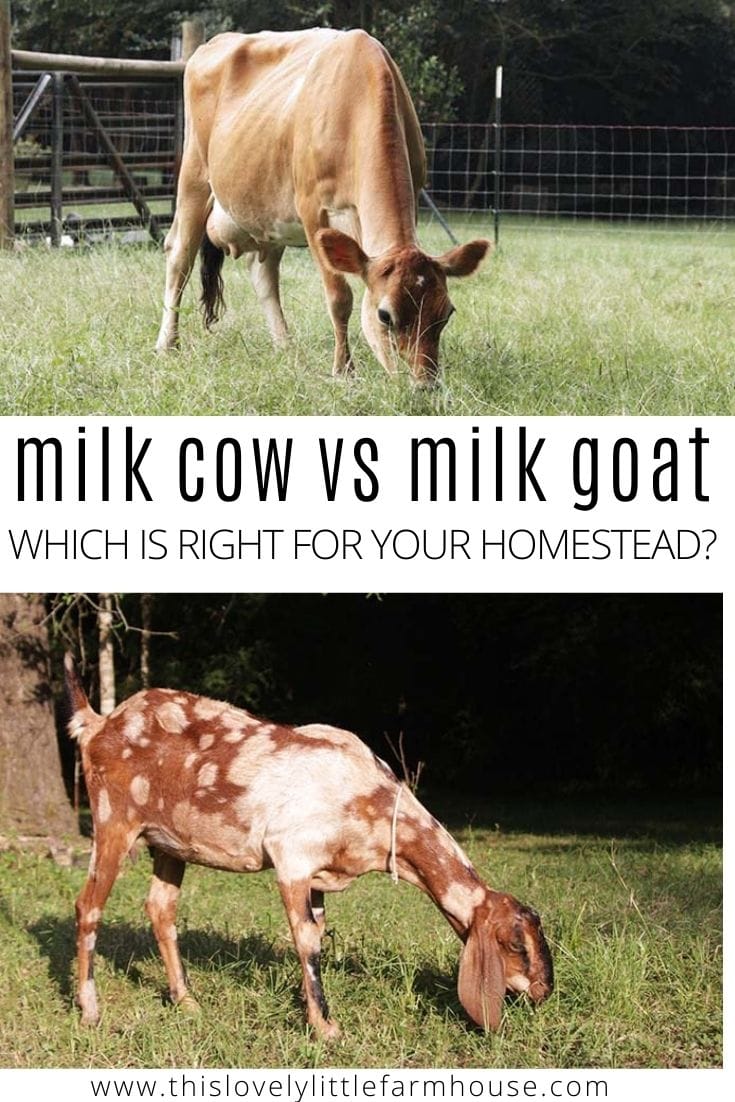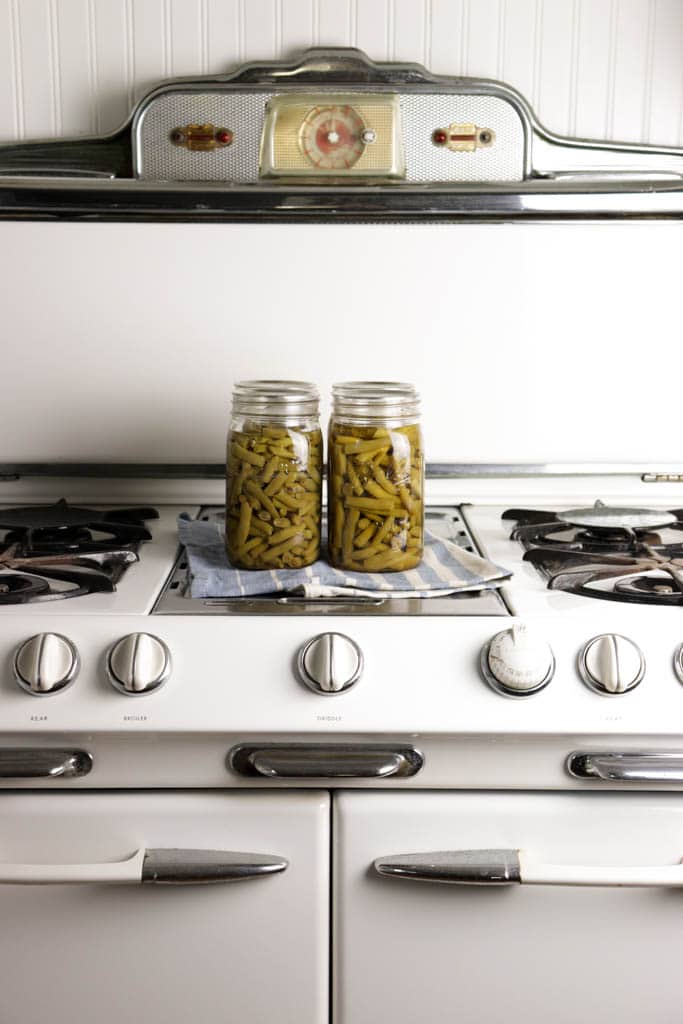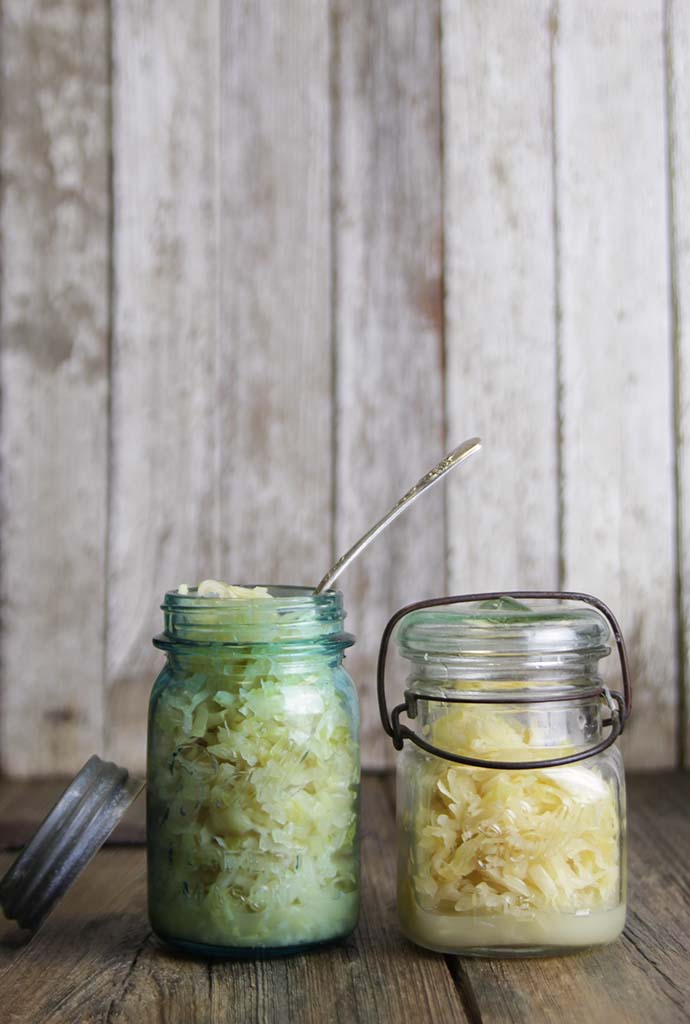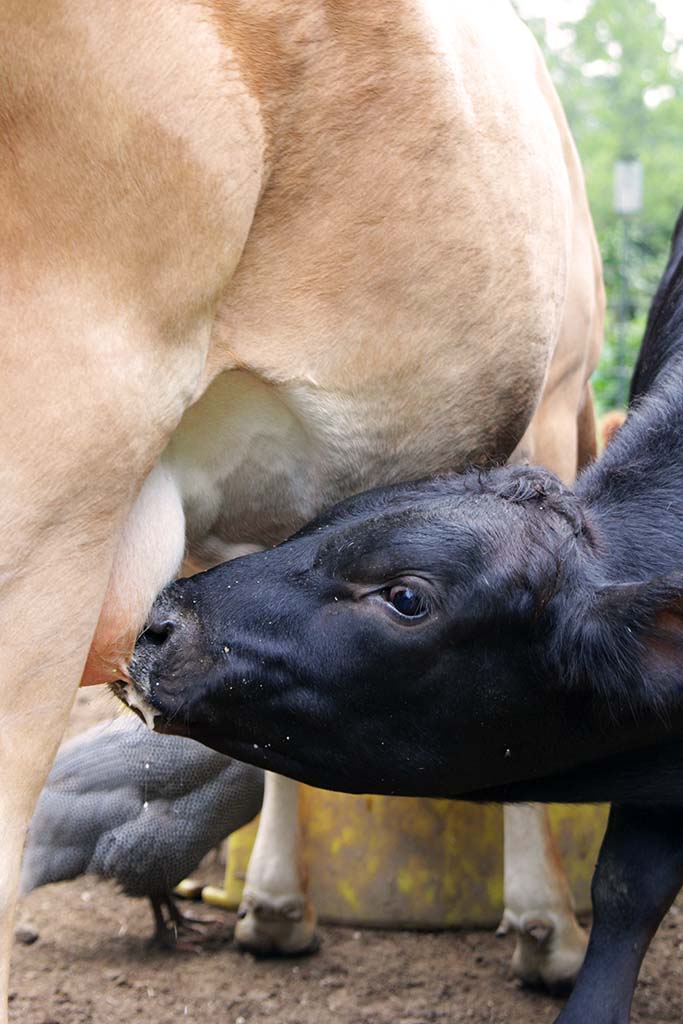Milk Cow vs Milk Goat | Getting Started With A Home Dairy
Confused on whether to get a milk cow or a milk goat? This is the most comprehensive look at the pros and cons of a cow vs a goat for your homestead.
The great cow vs goat debate. We’re discussing the differences and what some of the pros and cons of each is for a homestead. Although I’m sure there are more things to consider, I’ve done my best to put together a comprehensive comparison based on owning both dairy goats and dairy cows.
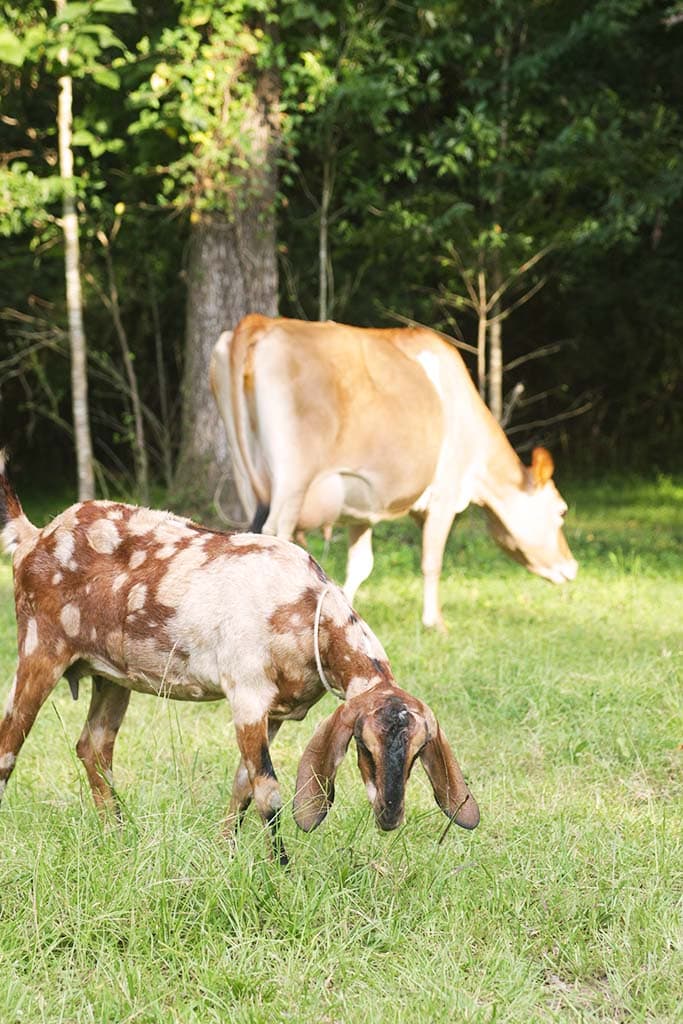
I’ve mentioned it before, but it seems like the pinnacle of homesteading is having your own dairy animal whether it be a cow, goat, or even a sheep. A lot of times people seem to be all one way or the other on which one is best. In reality, they each have their pros and cons and both aren’t suitable for every person and their homestead. Let’s dive into some of the differences as well as the pros and cons of each!
Space Requirements
I’d say one of the more obvious differences when considering getting a milk cow or a dairy goat will be the amount of space each needs. Typically, a cow will need a minimum of about 2 acres. Depending on where you live and the type of pasture, they can need much more than that in order to not completely deplete the pasture.
A goat on the other hand requires much less space just because of the huge difference in size. You can easily keep a few goats on the same amount of pasture that one cow requires.
Initial Cost Investment
Another thing that is a big deciding factor for many people is simply the huge difference in the cost of a milk cow vs a milk goat.
To buy a good, quality milk goat, you can expect to spend anywhere from $200 – 300 in our area. A lot of that will depend on what breed you’re buying and if they’re registered or not.
A good dairy cow on the other hand typically runs $1,200 – 2,500 depending on what breed, whether they’re bred, and if they’re an experienced milker or not. That doesn’t even factor in any other cost besides the animal itself.
So if you’re just setting up your home dairy and getting a milk animal for the first time, a $200 goat can be a lot more feasible than a $2,000 cow.
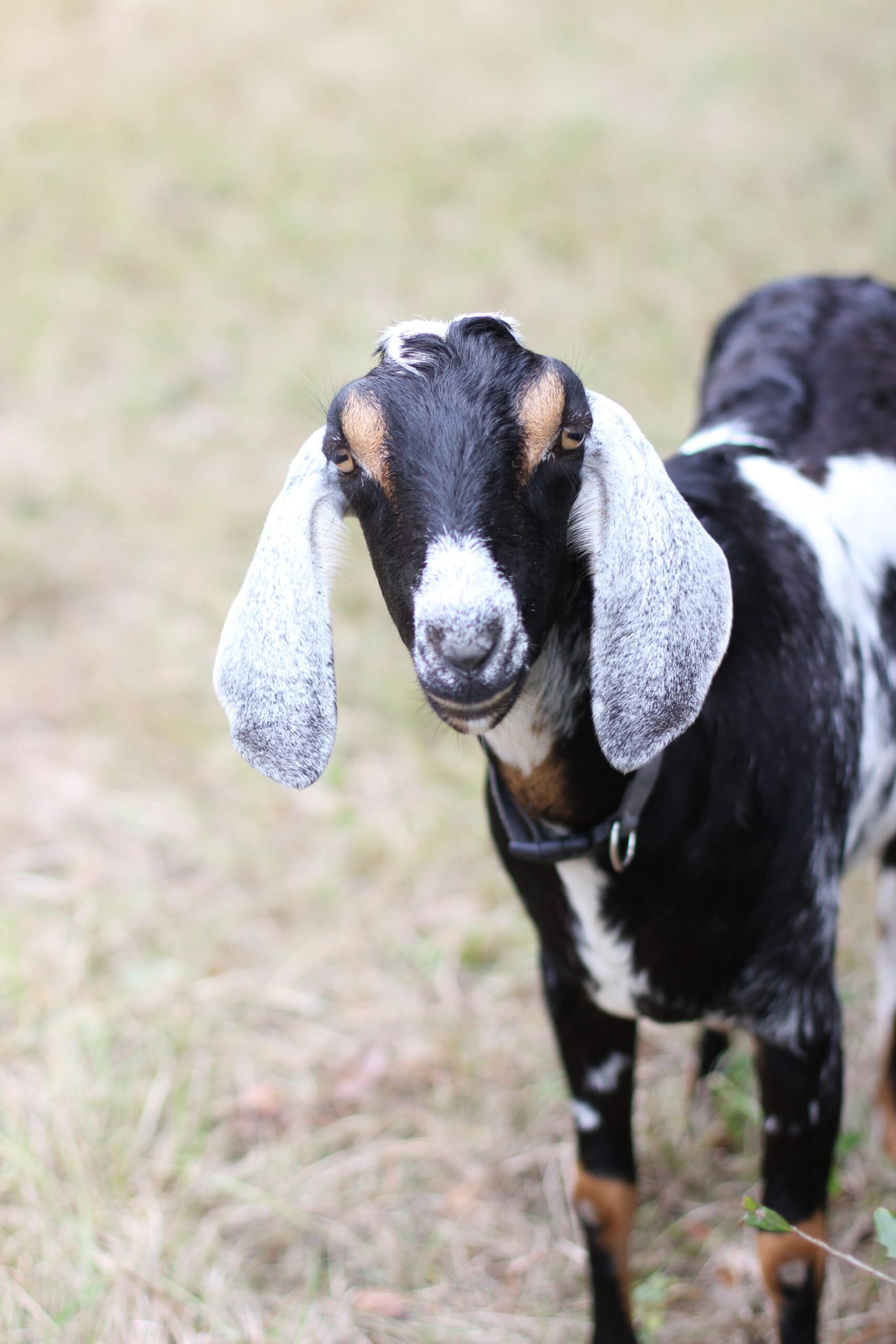
Grazing Preferences
Along those same lines, cows and goats have different tastes. Cows are grazers and prefer grass or hay. During the winter and when grass is scarce they will go into wooded areas but in general, they’re grass eaters.
Goats are more browsers than grazers and love wooded areas with brush to munch on. They will eat grass as well but given a choice between the 2, goats tend to gravitate towards the bushy type undergrowth in woods.
So what type of pasture you have available could make a big difference on whether a cow or goat would be an “easier keeper” and require less supplementing of feed and hay.
Feed Costs
Obviously a cow is going to need way more feed and or hay than a goat to stay in the same prime condition. You don’t necessarily have to feed grain, but depending on your pasture, the time of year, and your goals for your dairy animal, you may have to feed to keep them healthy. Our cow eats about 1/2 of a five gallon bucket of feed morning and evening but the 2 goats together don’t even usually finish off a gallon.
You’ll most definitely need hay during the winter at a minimum. Typically, cows are fed huge round bales that they can eat free choice while goats can be fed square bales. Round bales weigh much more than can be maneuvered by hand and require a tractor to get situated in the pasture whereas square bales are small and easy to store and feed.
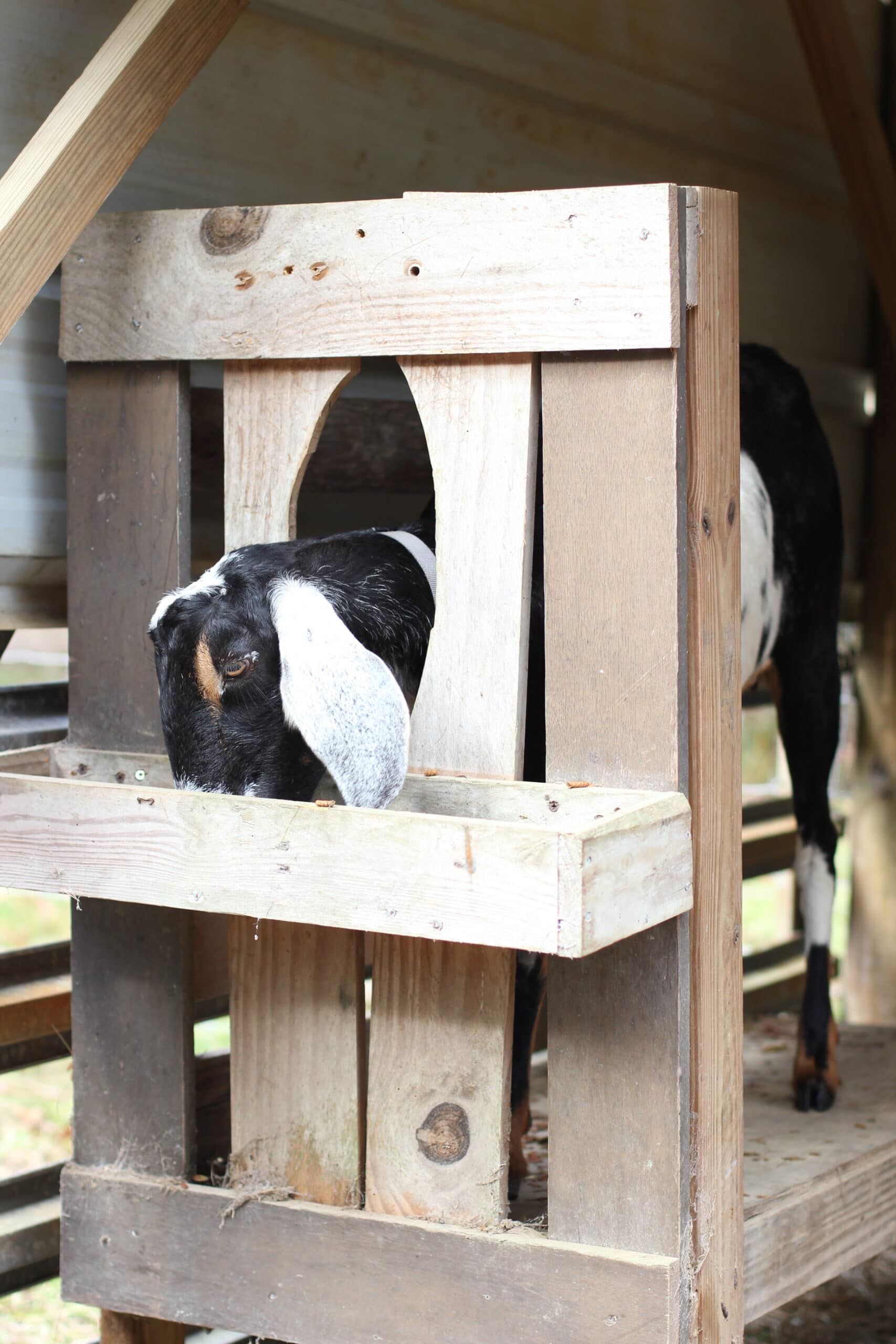
Fencing Requirements
Goats are notorious for being hard to keep in a pasture and from my experience, they live up to the reputation fabulously! We had one in particular that we couldn’t keep in the fence no matter what we did!
The best fencing for a goat is a net wire. This is the kind we used and we got it from our local farmer’s co-op. They also sell it at farm supply stores like tractor supply. You’ll never get away with a barbed wire or board fence. They just go straight through!
You’ll also have to have gates that aren’t too high off of the ground and you may even have to attach wire to the gates, especially to keep little babies in. They’re so good at escaping!
I do know some people have great success with an electric net fencing that is similar to the metal net wire. It’s portable as well and can be moved around for a more rotational grazing approach.
Cows on the other hand can be kept in with a 3 or 4 strand barbed wire fence which is much cheaper to build. For a good gentle cow, you can even usually get away with a 2 or 3 strand hot wire {electric} fence. They don’t go under and through fences or gates nearly as easily as a goat can.
Shelter Needs/Hardiness
Depending on your climate, cows are very hardy and don’t absolutely have to have shelter. We live in the hot, humid south and as long as they have a few trees so they can get out of the direct sun, our cows are happy. They also love to go soak in the pond on hot, sultry days!
Of course, this will be a lot different if you live where there are bitterly cold, snowy winters. In that case, any animal will require winter shelter from the elements, cows included.
A goat on the other hand doesn’t handle the elements very well and needs to have shelter to get out of a rainstorm or bad weather. They’re not nearly as hardy as a cow in that respect although I suspect there are plenty of hardier breeds such as wild brush type goats that do perfectly fine out in the elements.
Another thing to note with the comparison of hardiness is that goats are particularly susceptible to parasites and nutritional deficiencies. A parasite load can quickly kill a goat if you’re not monitoring them regularly and staying on top of any parasites.
Cows on the other hand rarely have problems with parasites and I’ve never heard of one dying because of them.
I tend to think of dairy goats as much more “delicate” animals. Kind of like comparing a hound dog to a teacup poodle. Which leads us to the next comparison.
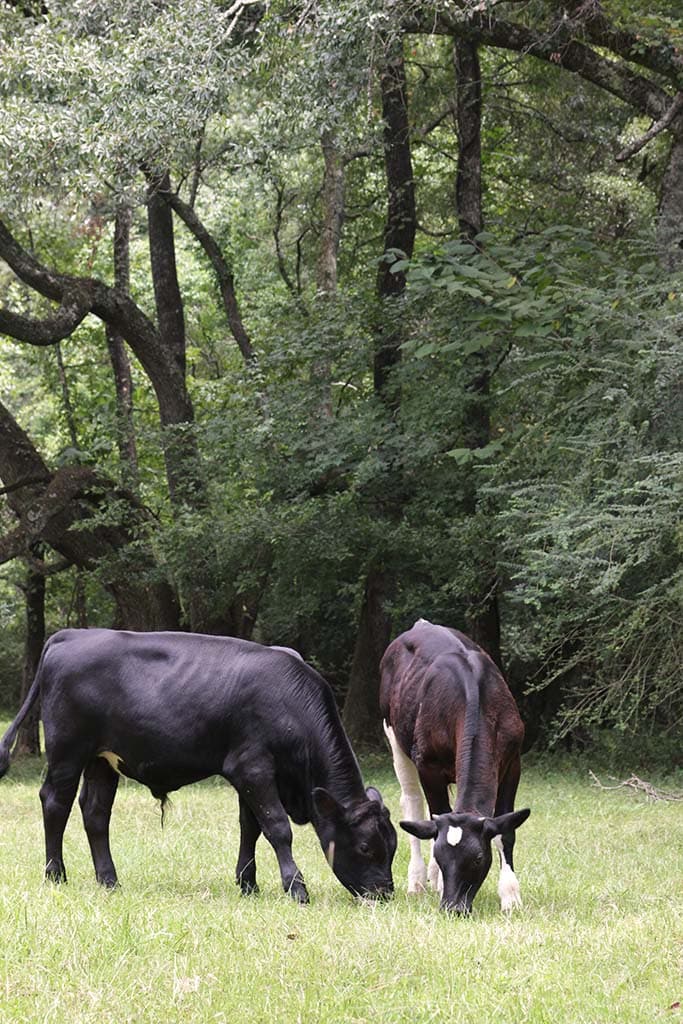
Reaction To Injury
Goats typically don’t handle pain well and go in to shock very easily. We lost a doe who had trouble kidding, even though they took her to the vet and got the kid out, because she went into shock. They do seem to be a little more prone to injury than a cow {in my experience} and not so low maintenance to keep.
A cow on the other hand can have a really bad injury, get treated and heal up fine, even from traumatic things like having a stuck calf pulled out or getting gored by another cow. That doesn’t mean they never have complications but they’re much less delicate than a goat and handle injury and pain much better.
Vet Or Emergency Care
When problems arise for large animals, many vets will do farm calls instead of an owner having to load their animal up and haul them to the vet. A lot of times, that’s not even an option if your animal is down and can’t move or walk on it’s own.
Depending on where you live, it can be a difficult task to find a vet within your proximity that treats large animals like cows and horses, much less one who does farm calls. Just recently a vet that we’ve used for years stopped taking cows and horses because they do so much more business with small animals. So it can become a challenge when a problem comes up get your animal the care it needs to pull through.
We even had problems recently when we had a goat that got attacked by a dog and were trying to find a vet to come out and look at her. So many vets are moving to only doing small animals, which means you either have to load your animal up and haul them farther from home, or you’re on your own. Hopefully you have excellent veterinary options close to you but that’s becoming hard to find around here.
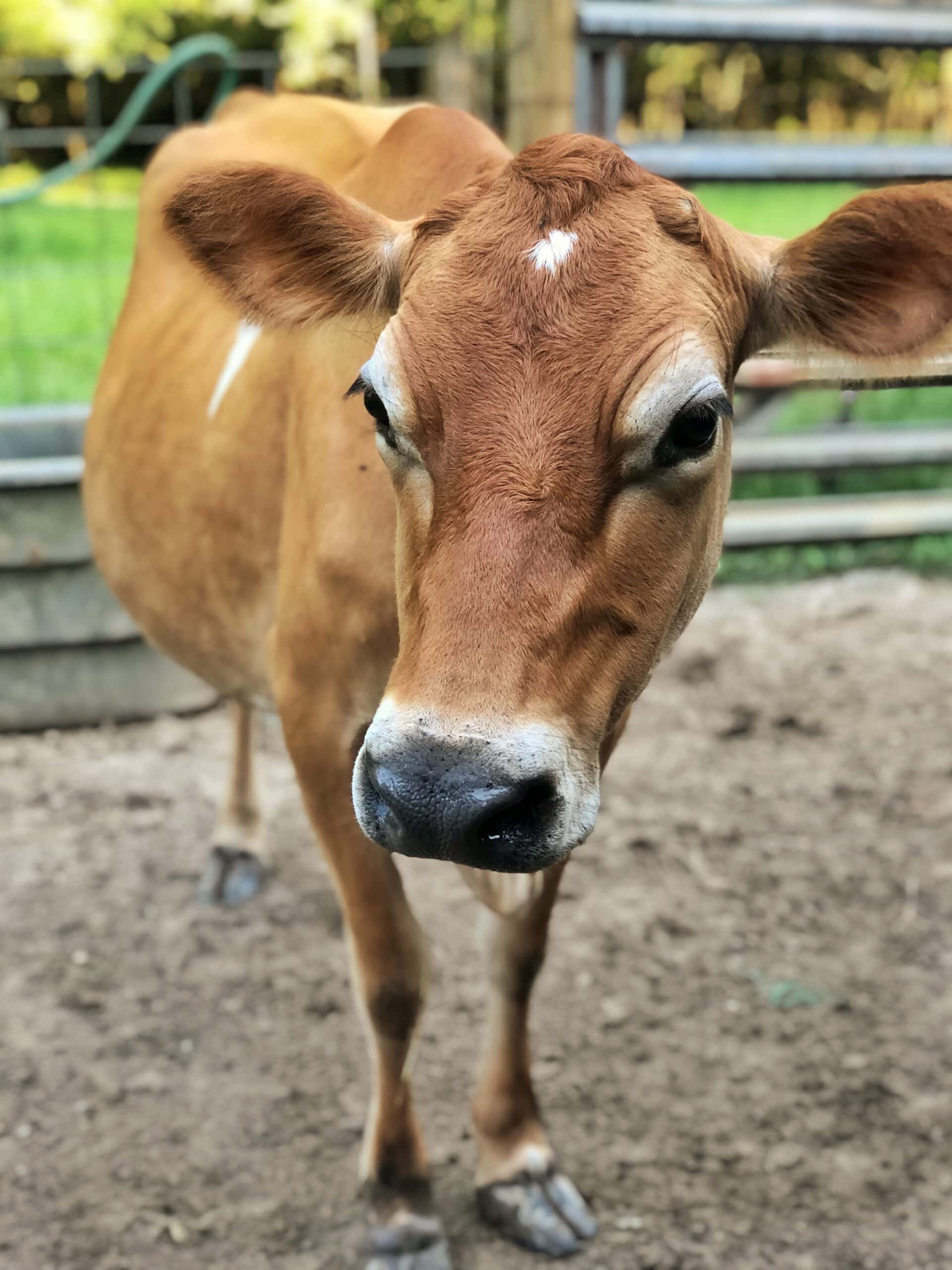
Transportation
Related to the last point is another big difference to consider and that’s the ease of transportation for a milk cow vs a milk goat.
For a goat, you can easily build a small little pen out of hog wire that can be put into the back of your truck or even an SUV.{I’d recommend putting down a tarp if going to SUV route} An SUV wouldn’t be my first choice but it would be doable for a goat or 2.
A full grown cow on the other hand, requires a truck and trailer to be hauled if the need should ever arise. They can also be quite difficult to get in said trailer at times!
Temperament and Friendliness
In general, a goat will be much more “friendly” than a cow, especially if they were bottle raised or had lots of human interaction as little babies. Not that cows are unfriendly but goats can be just like big dogs. They come when they hear you outside and want nothing more than ear rubs and scratches. They can have temperaments much more like pets than “work” animals.
I’m sure some cows have temperaments more like pets but in my experience they’re more standoffish and prefer to do their own thing. They come in for milking and feeding time and can even be super sweet and gentle, but I’ve never had one that rushed over to the fence because it heard my voice and was just dying to be scratched. Our three latest goats have all been like that and are more like big puppy dogs than anything else.
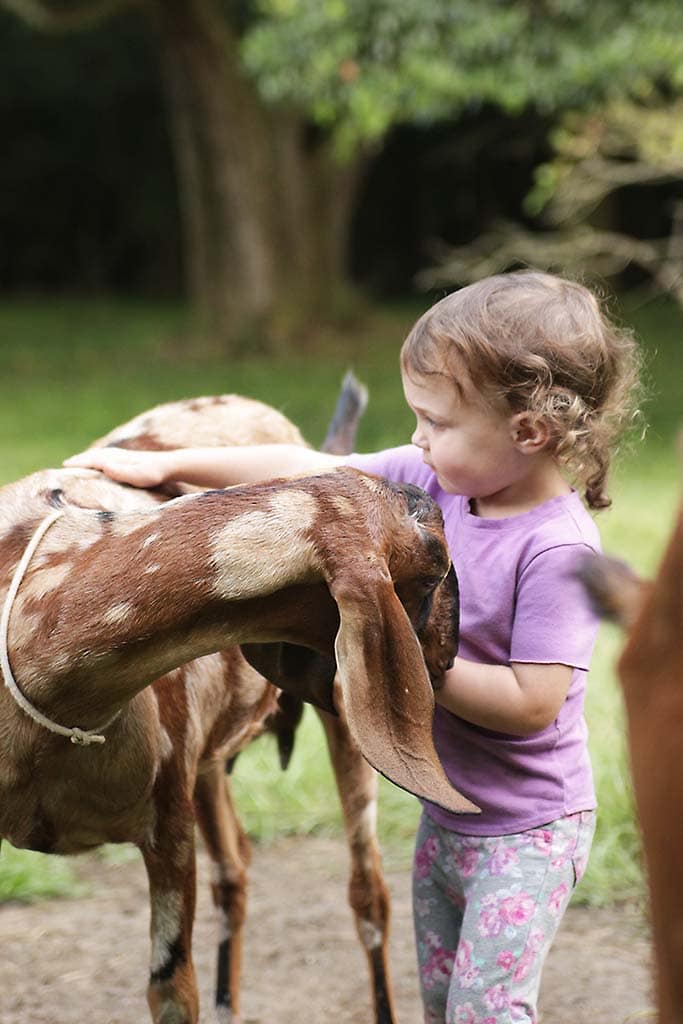
Manageability and Intimidation Factor
Obviously, given a cow’s size compared to a goat, they can be much more intimidating for a first time owner. It’s much easier for them to buffalo you with their behavior because, well, to be honest, they can really hurt you if they get it in their head to.
A goat can be mean and sour tempered but still not be as intimidating just because they’re smaller and you can kind of push them around easier. Now don’t think I’m talking about animal cruelty here because I’m not. But you can physically boss around a goat much easier than a 1,200 pound stubborn cow.
Just like anything else, there will be super sweet mannered cows who will do everything that you ask them willingly. There will also be stubborn, obstinate goats that won’t do anything willingly. That’s where it’s super important to really observe that animal that your looking to purchase and get an idea of their temperament before you bring them home.
Ease Of Milking / How Long It Takes To Milk
All things being equal as far as a good willing cow or goat who stands patiently to be milked, a goat is soooo much easier and quicker to milk{in general}. The exception to that would be a goat that’s a new milker and who’s teats are super tiny and short.
A goat’s bag is so soft and they’re just plain easier to milk. A cow’s udder and teats are much firmer and of course due to the quantity that you’re getting, a cow takes longer to milk. A cow also has a nice long tail that she can swat you in the face with and you certainly don’t have to worry about that with a goat!
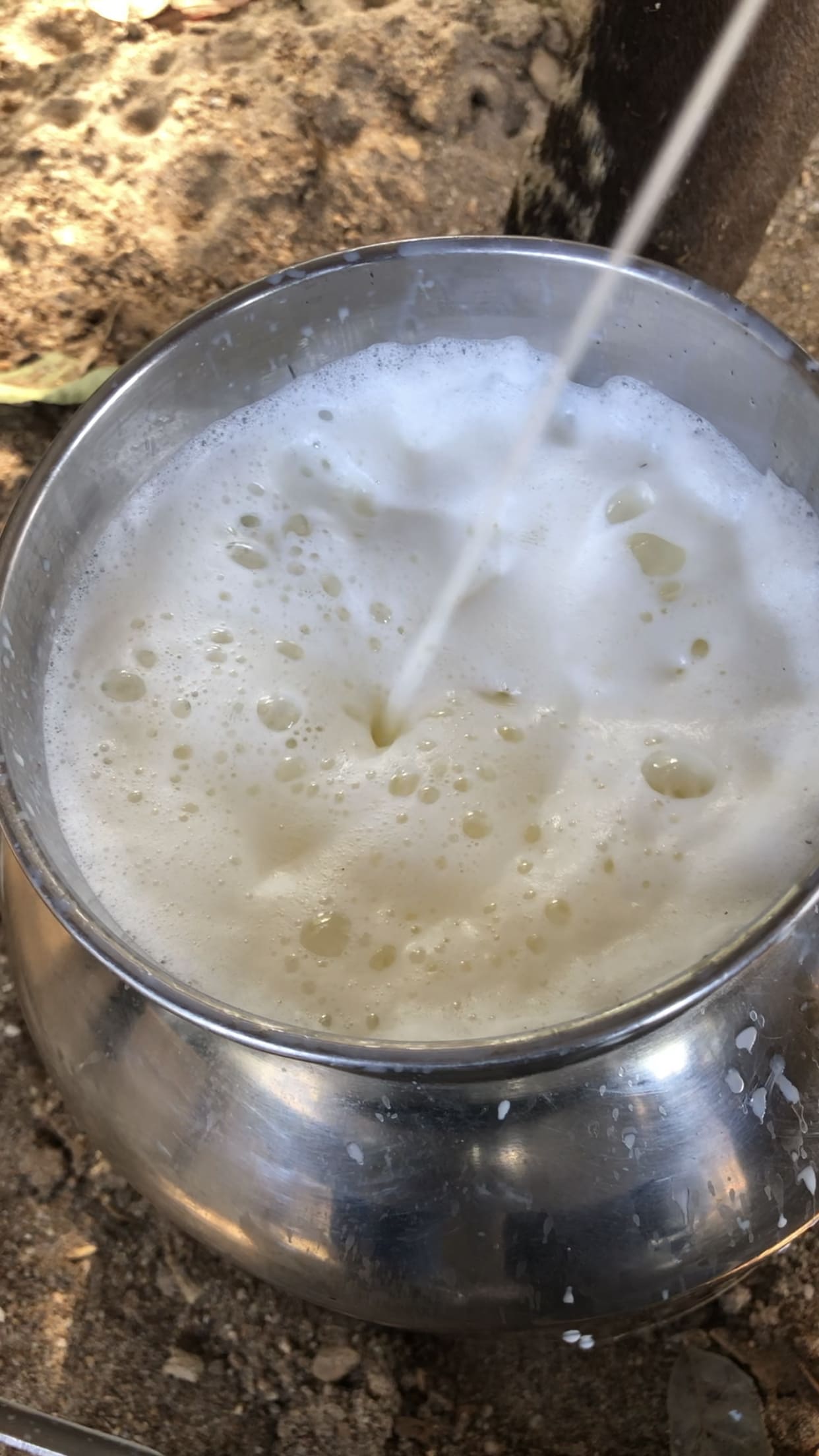
Milk Quantity Produced
A cow makes a lot of milk every day. With no calves you could be getting upwards of 6-8 gallons of milk a day! There are variables that will have a impact on how much milk you get such as the breed of cow, the point in her lactation cycle, whether she’s nursing calves as well, diet, etc.
Goats make much less milk per day. With a standard size goat such as a Nubian, you can generally expect to get about a quart per milking or 1/2 gallon a day. Just like with a dairy cow, there are many variables that will affect how much milk they will produce.
Homogenization Of Milk
Along those same lines, is a difference in the natural homogenization of cow milk vs goat milk. Goat milk is naturally homogenized which means that the cream doesn’t separate from the milk and rise to the top. It makes for super thick, rich milk since all of the cream stays mixed with the milk.
Cow milk isn’t naturally homogenized so the cream will separated from the milk and rise to the top. You’ll have a nice thick layer of rich cream on top that you can skim off to make butter, ice cream, or use in your coffee. It’s one of the biggest perks to having a milk cow!
So if your goal is to make as many of your dairy products as possible, a cow could be a better option as you have the opportunity to get much more milk and the cream separates out so easily to make things like butter, sour cream, etc.
If you choose goats, you can still have rich, thick cream, but you’ll have to purchase a cream separator to run the milk through which is a rather large investment.
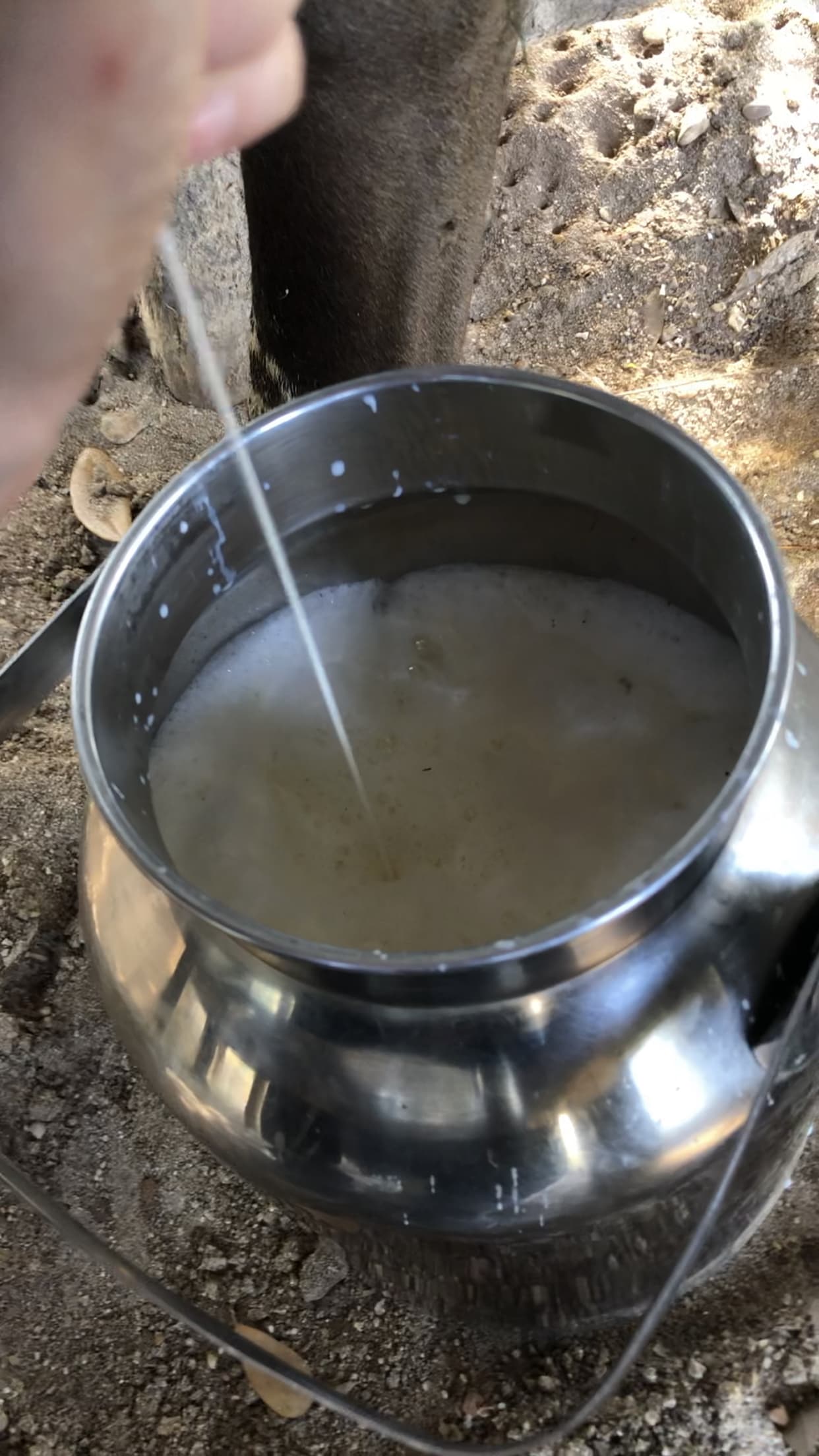
Taste Of Milk / A1 or A2
Many people have a very skewed idea of what goat milk tastes like because all they’ve ever tasted is the carton goat milk from the store. Full disclosure: I’ve never tasted carton goat milk and I have absolutely no desire to. From everything I’ve heard, it’s disgusting!
Fresh goat milk on the other hand is rich and creamy and quite delicious! Some goats do have stronger flavored milk and you have to be careful to keep any bucks away from your does or your milk won’t taste good at all. If the flavor is something you’re worried about, research which goats have the sweetest tasting milk and it would even be a good idea to find some fresh milk from those breeds and taste it before you dive right in and buy your own.
Fresh cow milk tastes amazing of course! Store bought white water doesn’t even come close to comparing to a big, cold glass of freshly squeezed milk! It’ll really ruin you from drinking store bought milk.
Many people do have taste preferences between fresh cow milk and fresh goat milk. My husband loves and prefers the super rich, creamy goat milk but I would pick raw cow milk over the goat milk every time. Not that I don’t like the goat milk, I just like cow milk better!
Another thing to consider if you’re getting your own dairy animals and have any dairy intolerances is the A1/A2 status of the animal you get. In a nutshell, A2/A2 milk is easier to digest because it only carries the A2 variant of the beta-casein protein.
Cows can be either A1/A2 or A2/A2 but all goats are A2/A2 so many people with dairy intolerances can handle raw milk from animals that are A2/A2. You can read more about it if you’re interested, but I personally think having a dairy animal that is A2/A2 is a healthier choice.
Gestation Length and Number Of Babies
The gestation length for a cow is 9 months, the same as a person. They typically have single babies and will rarely have twins.
A goat’s gestation period is 5 months and they are much less likely have singleton births. They very commonly have twins and triplets but will sometimes have single babies, especially if it’s their first baby or if they’re getting older.
So with goats, there’s a good chance that your herd with increase rapidly and you may become known as the crazy goat lady {or man}.
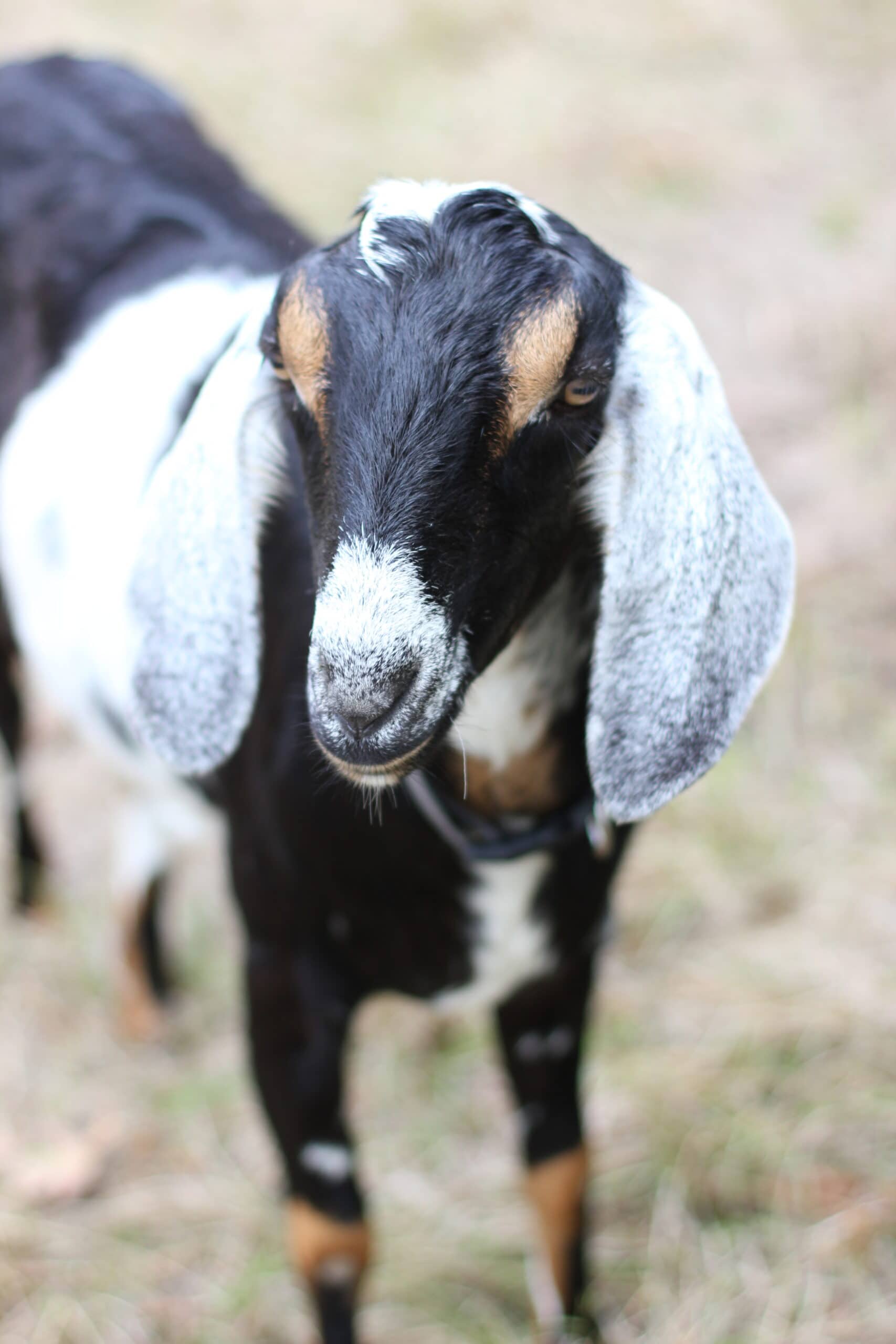
Re-breeding
The ease of getting your dairy animal rebred could be a big factor in what kind you choose. Many people keep their own buck to rebreed their does or have a “community” buck that gets passed around between a few different farms throughout the year. A buck is way easier and less expensive to keep than a bull!
For a dairy cow, you can artificially inseminate to get around having to keep a bull but you’ll have to find someone to do it, like a vet. It’s possible that you could have a local farmer or homesteader breed your cow for you, but everyone won’t have that option.
Fill Your Freezer
A great advantage of a milk cow and calf sharing is the ability to fill your freezer with fresh beef that you raised right there on your homestead. You can also raise your baby goats for meat but the downside is that you don’t get nearly as much meat from a single one. And baby goats are just so darn cute!
So lets refresh with a quick pros and cons list for each:
The Bottom Line
Milk cows and milk goats each have their respective pros and cons. They can both be a valuable addition to a homestead and both can provide delicious, healthy milk for your family.
If this is going to be your first experience delving into the world of home dairy, do plenty of research and make sure you weigh which fits better with your homestead and lifestyle.
While goats definitely have their perks for beginners, cows do as well. The biggest thing is to learn as much as you can before you bring one or the other home to your farm so you’ll be prepared for the situations that will undoubtedly arise.
So tell me, are you team cow or team goat? Or both???
More Homesteading Reads:
Homestead Gift Guide | Homestead And Farm Essentials
Calf Sharing | Only Milk Once A Day {Or Only When You Need Milk}
Save This To Your Favorite Homesteading Board:
